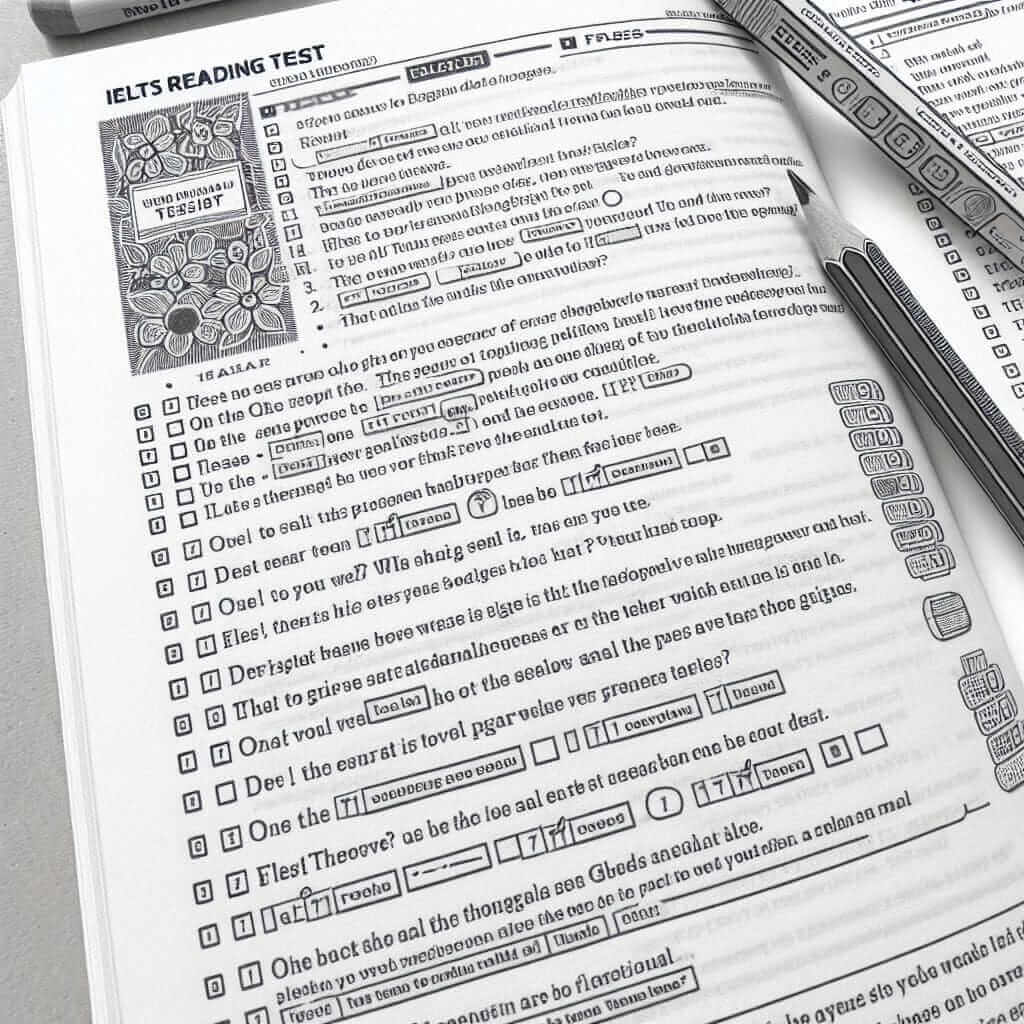As an IELTS instructor with over 20 years of experience, I often encounter students puzzled by the phrase “IELTS Reading Test 3 True.” This confusion stems from a misunderstanding of how the IELTS Reading test is structured and the nature of its True/False/Not Given questions. Let’s demystify this concept and equip you with the skills to excel in the IELTS Reading section.
Deciphering “IELTS Reading Test 3 True”
The phrase itself doesn’t refer to a specific test version or question. Instead, it points to a common scenario students face in the IELTS Reading exam: encountering a statement and needing to determine if it aligns with information presented in a passage (True), contradicts the passage (False), or if the passage lacks sufficient information to decide (Not Given).
Mastering True/False/Not Given Questions
These questions assess your ability to comprehend factual details and infer meaning from the text. Here’s a breakdown of each answer choice:
1. True:
The statement accurately reflects the information provided in the passage. This doesn’t mean the wording is identical; rather, the meaning is consistent.
2. False:
The statement directly contradicts information stated in the passage.
3. Not Given:
The passage doesn’t offer enough information to confirm or deny the statement. It’s crucial to avoid making assumptions or drawing on external knowledge.
Strategies for Success:
- Keyword Focus: Identify keywords in the statement and locate them or their synonyms within the passage.
- Careful Reading: Analyze the context surrounding those keywords in the passage. Does it support, contradict, or remain silent on the statement’s claim?
- Avoid Overthinking: If the information isn’t directly present or logically inferred from the passage, it’s likely “Not Given.”
- Practice Makes Perfect: Familiarize yourself with the question format by working through practice tests and analyzing sample answers.

Example from a Real IELTS Reading Passage:
Passage Extract: “The city of Paris attracts millions of tourists annually, drawn to its iconic landmarks and rich cultural heritage.”
Statement: “Paris is the most visited city in the world.”
Answer: Not Given. While the passage mentions Paris attracts many tourists, it doesn’t compare it to other cities or claim it’s the most visited.
Tips to Enhance Your Performance:
- Improve your reading speed: Time management is crucial in the IELTS Reading test.
- Develop your vocabulary: A strong vocabulary aids in understanding complex passages.
- Practice skimming and scanning: These techniques help locate specific information quickly.
Conclusion:
“IELTS Reading Test 3 True” signifies the task of accurately matching information. By understanding the nuances of True/False/Not Given questions, employing effective strategies, and practicing diligently, you can confidently approach the IELTS Reading section and achieve your desired score.